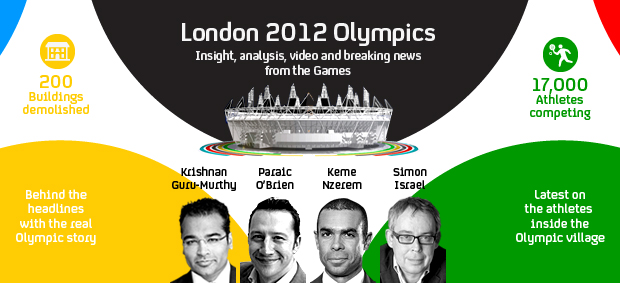Olympic archive: Coe v Ovett (1980)
The rivalry between Sebastian Coe and Steve Ovett defined British athletics in the late 1970s. ITN followed the athletes at Bislett in Oslo, their final meeting before the 1980 Moscow Olympics.
For athletics fans in the late 1970s, the rivalry between Britain’s two premier middle-distance runners, Steve Ovett and Sebastian Coe, promised to be one of the highlights of the Moscow Olympics, writes Ian Searcey.
The Bislett Games in Oslo in early July 1980, was the last meeting for the two before the summer games opened, and ITN sent Tony Francis to assess their progress.
Ovett’s effusive behaviour on the track over the years had made him a crowd favourite, but he shunned publicity and refused all interviews. The ITN crew found him staying in a small local hotel away from the British team.
Francis describes Coe as the “more tranquil personality”, someone who trained quietly and refused to be drawn into any great conflict with his rival. Coe even plays down the importance of the Olympics in his career, claiming “you miss a lot out” if, in 15 or 16 years of running, success at the Games is all you are aiming for.
Coe set a new world record for the 1,000 metres in Oslo and, as a result, held all four middle distance records (800m, 1000m, 1500m and the mile) simultaneously.
But only for an hour. On the same day, Ovett beat the mile record and went on to tie Coe’s record for the 1500 metres before the Bislett meeting was over, increasing the sporting rivalry and media excitement as Moscow approached.
Unbeaten over the distance for three years, Ovett was favourite to win the 1500 metres at the Olympic Games. But having surprised everyone – including world record holder Coe – to take gold in the 800m, he finished a disappointing third behind Coe and East German Jurgen Straub in the 1500m final.
Both runners retired in 1991 after bouts of ill health and injuries. But while Coe went on to become an MP, a minister, and eventually a lord, playing a part in several British Olympic bids before landing the 2012 Games for London, Ovett maintained his low profile and quietly moved to Australia.
